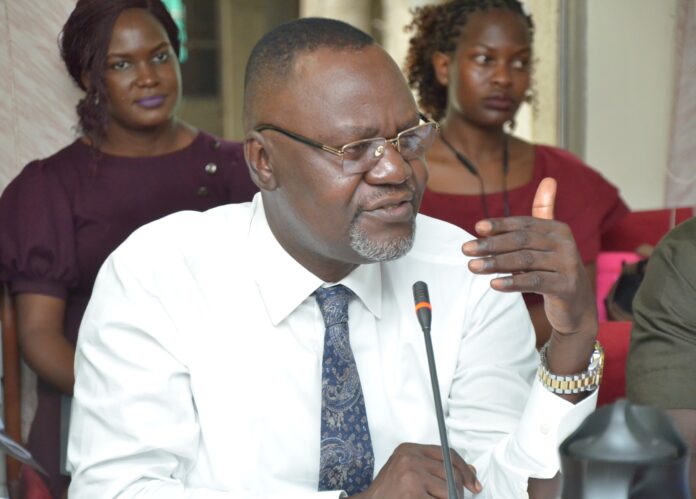
Members of Parliament have protested a move by the government to increase the number of justices at the Supreme Court, saying it will result in hefty expenditures on taxpayers.
The legislators claimed this will see taxpayers pay Shs37 billion annually in salaries and other emoluments in the mid-term, an expenditure they said is unsustainable in Uganda.
The warning was issued by MP Abdu Katuntu (Bugweri County), who rejected proposals by the Judiciary, Law Development Centre, and Uganda Law Reform Commission that backed the proposal contained in the Judicature Amendment Bill 2023, while appearing before the Legal and Parliamentary Affairs Committee on Friday, November 25, 2023.
“What we support is the regionalization of the court of appeal, and we shall interrogate the numbers. At the court of appeal, we may need more manpower because we have to decentralize so that people in the North don’t have to travel to Kampala to do appeals. The Supreme Court should just change their methods of work to fight backlogs,” Katuntu said.
MP Katuntu also wondered if the planned increase of justices at the Supreme Court is intended to create jobs for some people in government at the expense of taxpayers, saying there is a need to sieve which cases go to the Supreme Court and end the current practice of the Court determining cases like who owns a certain building, saying the Supreme Court isn’t a trial court.
“70% of cases at the Supreme Court aren’t Supreme Court cases, and that is where the problem is. We are uncomfortable with a bloated Supreme Court; I hope we aren’t looking for jobs for specific people,” he added.
“You are telling us to create a bill of US$10 million (Shs37.9 billion) annually, which is in the medium term. The taxpayer deserves better. You don’t know how many mothers are dying while giving birth today, and instead, we are allocating the meager resources in areas where we can work differently and achieve the same results,” said Katuntu.
Katuntu made a comparison of 12 nations whose GDPs and populations are higher than Uganda, but most had fewer ratios of justices at the Supreme Court as compared to their people, wondering what was unique about Uganda to want a bloated Supreme Court.
Sarah Langa, Chief Registrar, said the justices at the two courts were last increased in 2011, and the new changes will see judges at the Supreme Court sit in three panels, adding that regional appeals courts will be established in Mbarara, Gulu, Mbale, Jinja, Arua, Fort Portal, Masaka, and Soroti to end the current practice of all appeals being done in Kampala.
“This will tremendously improve the number of cases handled and completed by the three panels, which will eliminate the case backlog. These will serve the people of Uganda better, and the cases will be concluded in a timely manner, which will also build investor confidence in the judicial system, therefore boosting the economic growth of the country,” said Langa.
Pamela Tibihikirra, Chairperson of the Uganda Law Reform Commission, backed the proposal to increase the number of justices at the Supreme Court but asked Parliament to ensure that the Judiciary justifies the numbers.
“The Administration of Justice Act 2020 might have given the judiciary more resources, but it also comes with a charge on the consolidated fund. So we need to balance our numbers very well because the package is very good and it extends to retirement as well. In principle, we agree with the increase in numbers, but we need to think through if these are the actual numbers that we need,” added Tibihikirra.
Tibihikirra also called for a deeper interrogation on what the increment will mean for Uganda’s budget, given that recently, salaries of judicial officers were enhanced in a package that left justices of the Supreme Court walk away with hefty retirement packages.
The government’s plan is to add 21 justices to the Supreme Court and the Court of Appeal with 55 justices.














